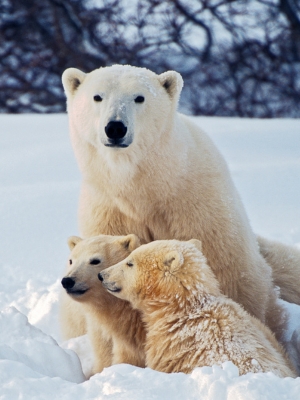A global group of leading primate protection and animal welfare experts led by Born Free USA have offered support to the Government of St. Maarten in a bid to halt reported plans to kill members of a troop of free-living green monkeys on the island as a means of population control. In a letter sent to the Minister for the Environment on February 2, 2023, and made public today, the groups outline concerns over current plans and make an offer of collaboration with the Caribbean Dutch territory and neighboring French Saint Martin to implement a humane sterilization program in place of the announced lethal cull.
Said Angela Grimes, CEO of Born Free USA: “Our coalition is standing ready to offer expertise, including voluntary veterinary services, to the Government of St. Maarten to save the innocent lives of the 450 monkeys who currently make their home there. A sterilization program will effectively and humanely reduce the non-native monkey population over time, and we have offered to work with St. Maarten authorities to help mitigate short-term issues caused by the monkeys, such as crop damage and encroachment into homes and schools. We are awaiting a response from the government to our letter, signed by 75 signatories, including world-renowned experts and organizations.”
In order to demonstrate support for non-lethal control, Born Free USA has also launched a petition to the St. Maarten Government to call for the cull to be abandoned.
The letter sent to the Government of St. Maarten in February highlights concerns over the research behind the proposed cull, citing multiple flaws in the work, including estimations surrounding population growth of the monkey population. The report, authored by the St. Maarten non-profit, The Nature Foundation, makes the erroneous claim that the monkey population can double in the space of one year, using this to justify their swift and drastic killing. In fact, if the population cited by the report is correct, the troop grows at around 10% per year, meaning that the level of population expansion feared by residents will take almost a decade. This, says the collective of primate experts, allows the government plenty of time to explore non-lethal control as a humane and effective response.
The letter further questions methodology and information provided as part of the public survey whereby the researchers sought views on the monkey’s presence. Not only was information provided in the survey skewed towards eradication as a preferred option, but the respondents to the survey were also predominantly self-identified as involved in agriculture (72%) – a group that would be arguably biased toward eradication of the monkeys as they perceive them as a nuisance. Data shows that over 85% of residents on St. Maarten are employed in tourism, and that agriculture makes up just 1% of St. Maarten’s GDP. That 72% of respondents to the public survey identified as being involved in agriculture suggests that little effort was made to ensure that the survey results were representative of the island’s wider population. Even with the identified biases in the survey, only 55% of respondents were in favor of eradication with the other 45% in favor of sterilization or leaving the monkeys alone.
Claims made in the report and on the social media page of the non-profit responsible for it suggested that sterilization of the monkeys would cost five times that of killing and that there was not enough funding to implement sterilization. It is unclear how the financial costs of sterilization have been calculated, and the groups behind the letter have asked for clarification on this point and for the opportunity to cost the project themselves, factoring in the offers of voluntary veterinary and project staff services.
Grimes continued: “We believe that a humane sterilization program is the compassionate choice for the St. Maarten government, will be the most cost-effective solution, and will position St. Maarten as a leader in humane wildlife management.”
Born Free USA operates one of the largest primate sanctuaries in the United States, caring for monkeys formerly exploited in the pet trade, in laboratories, and in zoos.
Read the letter to the Government of St. Maarten: https://bit.ly/stmaartenmonkeysletter
Sign the petition to Save the St. Maarten Monkeys: https://bit.ly/stmaartenmonkeys
 Dear Reader,
Dear Reader,